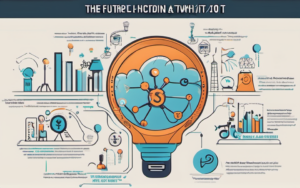The rapid advancement of technology has brought about a wave of innovation, with new tools and applications emerging seemingly overnight. From artificial intelligence (AI) and robotics to gene editing and autonomous vehicles, these emerging technologies have the potential to revolutionize our lives. However, with these advancements come important questions about the role of technology regulation. Should we allow these technologies to develop unchecked, or do we need to establish safeguards to ensure their responsible development and use?
The Rise of Emerging Technologies and the Need for Regulation
The Rapid Pace of Technological Advancement
The speed at which new technologies are being developed and deployed is unprecedented. AI, for example, has advanced rapidly in recent years, with systems now capable of performing tasks that were once thought to be exclusively human. This rapid pace of development makes it challenging for policymakers to keep up and assess the potential impact of these technologies.
Potential Benefits and Risks of Emerging Technologies
While emerging technologies hold immense promise for addressing global challenges and improving our lives, they also present significant risks. AI systems, for instance, could be used to automate tasks that are currently performed by humans, leading to job displacement and economic instability. Similarly, the misuse of biotechnology could lead to unintended consequences, while autonomous vehicles raise concerns about safety and liability.
Arguments for Regulation
Protecting Public Safety and Security
One of the most compelling arguments for technology regulation is the need to protect public safety and security. This is particularly relevant in the context of AI and autonomous vehicles, where malfunctions could have serious consequences. Regulation can help ensure that these technologies are developed and deployed in a safe and responsible manner.
Addressing Ethical Concerns
Emerging technologies raise a range of ethical concerns, such as the potential for bias in AI algorithms, the implications of gene editing for human evolution, and the impact of automation on employment. Regulations can provide a framework for addressing these ethical concerns and ensuring that these technologies are used in a way that is consistent with our values.
Preventing Monopolization and Market Manipulation
The rapid development of emerging technologies can create opportunities for large corporations to gain a dominant market position. Regulation can help to prevent monopolies and ensure that these technologies are accessible to all. It can also prevent the manipulation of markets and ensure fair competition.
Ensuring Responsible Innovation
Regulation can encourage responsible innovation by setting standards for the development and deployment of emerging technologies. This can help to prevent unintended consequences and ensure that these technologies are used for the benefit of society. For instance, regulations can require companies to conduct thorough risk assessments and obtain ethical approval before deploying new technologies.
Arguments Against Regulation
Stifling Innovation and Economic Growth
One of the main arguments against technology regulation is that it can stifle innovation and economic growth. Opponents argue that regulations can be overly burdensome and stifle the development of new technologies. They also worry that regulations can make it difficult for startups to compete with established companies.
Difficulty in Keeping Up with Rapid Technological Change
Technology changes at a rapid pace, making it difficult for regulators to keep up. By the time a new regulation is put in place, the technology may have already evolved, rendering the regulation obsolete. This can lead to a situation where regulations are outdated and ineffective.
Potential for Overregulation and Bureaucracy
Overregulation can be a problem, as it can stifle innovation and create unnecessary bureaucratic hurdles. Finding the right balance between regulation and innovation is crucial. It is important to ensure that regulations are not so stringent that they discourage innovation, but also not so lax that they fail to address the potential risks.
Finding a Balance: A Framework for Responsible Regulation
Focus on High-Risk Areas
Rather than attempting to regulate every aspect of emerging technologies, regulators should focus on high-risk areas. For example, autonomous vehicles pose significant safety concerns, and regulations should be focused on ensuring their safety and reliability. AI systems that are used in decision-making processes, such as those that make loan decisions or predict crime, also warrant close scrutiny.
Adaptive and Flexible Regulations
Regulations should be adaptive and flexible to account for the rapid pace of technological change. This means that regulations should be periodically reviewed and updated to ensure that they remain relevant and effective. A more agile approach to regulation, perhaps with “sandboxes” for testing new technologies, could be a valuable tool.
Collaboration Between Government, Industry, and Academia
Effective regulation requires collaboration between government, industry, and academia. Government agencies can provide guidance and set standards, while industry can provide insights into the practical challenges of implementing new technologies. Academia can contribute research and expertise on the potential impacts of these technologies.
Public Engagement and Transparency
Public engagement is crucial for ensuring that regulations are developed and implemented in a way that is consistent with societal values. Regulators should engage with the public to solicit feedback and address concerns about the potential impacts of emerging technologies. Transparency is also important, with regulators being open about the rationale behind their decisions and the evidence they have considered.
Navigating the Ethical and Societal Implications of Emerging Technologies
The development of emerging technologies presents a unique set of challenges and opportunities. It is essential that we approach these technologies with a sense of responsibility and foresight. Regulation plays a crucial role in ensuring that these technologies are developed and used in a way that benefits all of humanity.
By striking a balance between promoting innovation and mitigating risks, we can harness the power of emerging technologies to create a better future for all. It is imperative that we engage in open and informed discussions about the potential impact of these technologies and work together to develop a framework for their responsible development and use. This will require ongoing collaboration between governments, industry, academia, and the public. Only then can we ensure that emerging technologies are used to address global challenges, promote human well-being, and create a more equitable and sustainable future.




